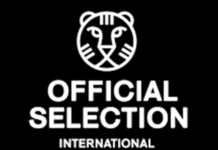Eloise Goldsmith
Common Dreams / January 24, 2025
‘Guess which country was exempted …?’ wrote the investigative outlet Drop Site News.
The State Department on Friday reportedly issued guidance that it is freezing almost all U.S. foreign assistance—with exceptions for emergency food aid and foreign military financing for two U.S. allies, Israel and Egypt—according to a cable obtained by multiple outlets.
“Guess which country was exempted …?” wrote the investigative outlet Drop Site News, in response to the cable, which independent journalist Ken Klippenstein shared on social media.
The aid carve out for Israel follows 15 months of nearly unqualified U.S. support for the Israeli government during its military campaign on the Gaza Strip, which began after Hamas attacked Israel in October 2023, and led to the deaths of tens of thousands of Palestinians, according to the local health officials. A ceasefire between Israel and Hamas went into effect on Sunday, but Israel has since then attacked the city of Jenin in the West Bank.
Other traditional U.S. allies, like Ukraine and Taiwan, are not listed among the waivers to the pause. Trump has been a longtime critic of NATO, which Ukraine hopes to join, and has been critical of the scale of U.S. support for Ukraine as it battles an invasion by Russia.
On Monday, his first day in office, Trump issued an executive order calling for a 90-day pause on U.S. foreign development assistance in order to assess “programmatic efficiencies and consistency with United States foreign policy.” But this latest memo, signed by Secretary of State Marco Rubio and sent to embassies worldwide, further fleshes out that directive.
The U.S. “shall not provide foreign assistance funded by or through the department and USAID without the secretary of state’s authorization or the authorization of his designee,” according to the cable, which was referring to the United States Agency for International Development.
Additionally, “no new obligations shall be made for foreign assistance until such times as the secretary shall determine, following a review” and “for existing foreign assistance awards, contracting officers and grant officers shall immediately issue stop-work orders.”
Politico, which also obtained Rubio’s memo, reported that “it had not been clear from the president’s [Monday] order if it would affect already appropriated funds or Ukraine aid. The new guidance means no further actions will be taken to disperse aid funding to programs already approved by the U.S. government, according to three current and two former officials familiar with the new guidance.”
“State just totally went nuclear on foreign assistance,” one State Department official told Politico.
In fiscal year 2023, the most recent year with complete government reporting, the U.S. spent $68 billion in foreign aid obligations, on topics ranging from economic development, to health and the environment. Ukraine was the top recipient of foreign aid that year, with $17 billion obligated, and Israel came in second, with $3.3 billion.
According to The Associated Press, which also obtained the cable, the order was particularly disappointing to humanitarian officials who hoped that health clinics and other health programs worldwide would be spared from the funding freeze.
Eloise Goldsmith is a staff writer for Common Dreams
_________
State Department freezes new funding for nearly all US aid programs worldwide
Ellen Knickmeyer & Farnoush Amiri
AP / January 25, 2025
WASHINGTON – The State Department ordered a sweeping freeze Friday on new funding for almost all U.S. foreign assistance, making exceptions for emergency food programs and military aid to Israel and Egypt.
The order threatened a quick halt to many of the billions of dollars in U.S.-funded projects globally to support health, education, development, job training, anti-corruption, security assistance and other efforts.
The U.S. provides more foreign aid globally than any other country, budgeting about $60 billion in 2023, or about 1% of the U.S. budget.
Secretary of State Marco Rubio’s order, delivered in a cable sent to U.S. embassies worldwide, specifically exempted emergency food programs, such as those helping to feed millions in a widening famine in warring Sudan.
The cable spells out the execution of the aid-freezing executive order President Donald Trump signed on Monday.
But Friday’s order especially disappointed humanitarian officials by not including specific exemptions for life-saving health programs, such as clinics and immunization programs.
A globally acclaimed anti-HIV program, the President’s Emergency Relief Plan for AIDS Relief, was among those included in the spending freeze, slated to last at least three months. Known as PEPFAR, the program is credited with saving 25 million lives, including those of 5.5 million children, since it was started by Republican President George W. Bush.
Some aid projects began receiving their first stop-work orders under the freeze Friday afternoon.
Some leading aid organizations also were interpreting the directive as an immediate stop-work order for U.S.-funded aid work globally, a former senior U.S. Agency for International Development official said. Many would likely cease operations immediately so as not to incur more costs, the official said. The official was not authorized to speak publicly and spoke on condition of anonymity.
Suspending funding “could have life or death consequences” for children and families around the world, said Abby Maxman, head of Oxfam America.
“By suspending foreign development assistance, the Trump administration is threatening the lives and futures of communities in crisis, and abandoning the United States’ long-held bipartisan approach to foreign assistance which supports people based on need, regardless of politics,” Maxman said in a statement.
At the United Nations, deputy spokesman Farhan Haq said: “These are bilateral decisions but nonetheless we expect those nations who have the capability to generously fund development assistance.”
While Rubio’s order exempted military assistance to allies Israel and Egypt from the freeze, there was no indication of a similar waiver to allow vital U.S. military assistance to Ukraine through.
The Biden administration pushed military aid to Ukraine out the door before leaving office because of doubts about whether Trump would continue it. But there is still about $3.85 billion in congressionally authorized funding for any future arms shipments to Ukraine and it is now up to Trump to decide whether or not to spend it.
The sweeping freeze begins enforcement of a pledge from Trump and other Republicans to crack down on U.S. aid programs.
Also on Friday, the State Department agency overseeing refugee and resettlement sent guidance to the resettlement agencies it works with, saying they had to immediately “suspend all work” under the foreign assistance they were receiving. While there was little clarity in the guidance, the notification suggests resettlement agencies that work with refugees, including Afghans who arrived on special immigrant visas, might have to halt their work at least temporarily.
Florida Republican Rep. Brian Mast, the new chairman of the House Foreign Affairs Committee, promised this week that Republicans would question “every dollar and every diplomat” in the State Department’s budget to ensure it met their standards for strictly necessary.
The freeze was necessary to ensure that “appropriations are not duplicated, are effective, and are consistent with President Trump’s foreign policy,” the global cable stated.
Within the next month, standards for a review of all foreign assistance are expected to be set to ensure that it is “aligned with President Trump’s foreign policy agenda,” the cable said. And within three months, the government-wide review is expected to be completed with a subsequent report to be produced for Rubio to make recommendations to the president.
Ellen Knickmeyer – foreign policy, national security
Farnoush Amiri covers Congress for The Associated Press, with a focus on foreign policy and congressional investigations
Associated Press writers Edith M. Lederer at the United Nations and Rebecca Santana contributed












